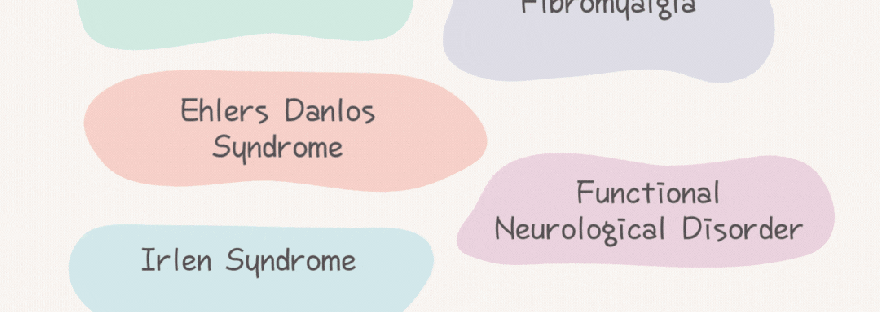*I use male and not men or boys because sex is how you are born and your gender is how you identify/feel. Please do not think I am being transphobic. I am trying to be scientific while respecting people*
What is Klinefelter syndrome?
Klinefelter syndrome is an genetic condition that happens when a male assigned at birth is born with an extra copy of the X chromosome. It is a genetic condition affecting males and it mostly is not diagnosed until adulthood.
Klinefelter syndrome can affect testicular growth. This results in smaller than normal testicles. This leads to a lower production of testosterone. It can cause reduced muscle mass, reduced body and facial hair and enlarged breast tissue. The effects of Klinefelter syndrome can vary. Not everyone has to same signs and symptoms. Everyone with this condition is different.
Symptoms
Babies:
- Weak muscles
- slow motor development- taking longer than average to sit up, crawl and walk
- speech delay
- problems at birth, testicles that have not descended
Children and Teenagers
- taller than average
- longer legs, shorter torso and broader hips compared with other males
- absent, delayed or incomplete puberty
- after puberty, less muscle and less facial and body hair compared with other teenagers
- small, firm testicles
- small penis
- enlarged breast tissue (gynomastia)
- weak bones
- low energy levels
- tendency to be shy and sensitive
- difficulty expressing thought4s and feeling or socializing
- problems with reading, writing, spelling or math
Adults:
- low or no sperm count
- small testicles and penis
- low sex drive
- taller than average heigh
- weak bones
- decreased facial and body hair
- less muscle compared with other males
- enlarged breast tissue
- increased body fat
Causes
Klinefelter syndrome is caused by a random error that causes a male to be born with an extra chromosome. This is not inherited. It can happen at any time. Humans have 46 chromosomes, including two sex chromosomes that determine a person’s sex. Females have two X chromosomes and males have an X and a Y. Extra copies of the X chromosome can interfere with male sexual development and fertility
Klinefelter syndrome is caused by a random error that causes a male to be born with an extra chromosome. This is not inherited. It can happen at any time. Humans have 46 chromosomes, including two sex chromosomes that determine a person’s sex. Females have two X chromosomes and males have an X and a Y. Extra copies of the X chromosome can interfere with male sexual development and fertility
Klinefelter syndrome can be caused by:
- one extra copy of the X chromosome in each cell (XXY) is the most common cause
- An extra X chromosome in some cells (mosaic Klinefelter syndrome) with fewer symptoms
- More than one extra copy of the X chromosome, a rare type and results in severe symptoms
Complications
- Anxiety and depression
- social, emotional and behavioral problems such as low self esteems, emotional immuturity and impulsiveness
- Infertility and problems with sexual function
- weak bones
- breast cancer and other cancers
- lung disease
- metabolic syndrome which includes type 2 diabetes, high blood pressure, and high cholesterol and triglycerides.
- autoimmune disorders such as lupus and rheumatoid arthritis
- tooth and oral issues that increase the occurrence of cavities
Klinefelter Syndrome and Autism
Autism is common with people with Klinefelter syndrome. There was a study conducted in April 1, 2018. This study had participants from two sites with Klinefelter syndrome. One with XXY type and the other with XXYY type. They were evaluated using medical history, adaptive functioning (study’s words, not mine), cognitive testing, the social communication questionnaire, social responsiveness scale, autism diagnostic observations scale, the autism diagnostic interview- revised and DSM criteria for autism.
The clinical impressions of autism diagnostic caterocriry using the ADOS and DSM-IV criteria was compared to the ADOS-2 and DSM-5 criteria. Testosterone tested were used to compare cognitive, adaptive, SES and prenatal VS postnatal diagnoses between autism vs no autism groups determined by the DSM 5.
The rates of autism in these two groups were 5% in the XXY group and 33% in the XYY and 43% in the XXYY group. The rate of autism in these groups were higher than expected than the general population. according to the this study, people with Klinefelter syndrome are 20% more likely to be autistic.
Klinefelter syndrome and Gender Dysphoria
Some children with Klinefelter syndrome grow up and live as men, some do develop different gender identities. This includes identifying as female or nonbinary.
“I started off at Charing Cross Hospital, Gender Identity Clinic (GIC), this is where I received my XXY diagnosis in 1998.
In 2005/6 I saw two different Endocrinologists, this is when I tried Testosterone (T), that caused me to have a breast biopsy, because my breasts grew and the left one developed lumps.
Also mentally the “T” took me to a type of living bereavement as I felt the XX side was dying. hence the “T” was ceased.
Around 2008 via another Gender doctor, in desperation I started to take Oestrogen (O), but obtained it via the internet, at the time I was still having yearly checks with the Breast centre. The “O” made me feel generally unwell with a type of opposite XY bereavement, but as it was not a prescribed hormone, I did not trust what I was taking so again I ceased.
After this I returned again to see other Gender related doctors, and gave up around 2011 as I was hitting a brick wall.
Before it is too late I would like Oestrogen prescribe to me. Not because I want to become female, as I am that already.
But, having tried “T” and it is not for me, I can not understand why as an XXY person. I have to visit a “GIC” and go down the road of living and working as a female….this is not me.”
This person was 48 years old who requested gender confirmation with hormonal therapy and surgical treatment. The psychiatric assessment found a gender dysphoria according to the DSM 5 criteria. This patient also had many atypical criteria such as infertility or learning disabilities. The endocrinologist found a testicular volume of 3ml, normal axillary and pubic chair. There was also low libido with erectile dysfunction. The endocrinologist found low testosterone.
After a workup from the endocrinologist, Klinefelter syndrome was found with a genotype 47 XXY. Because of the patients request, treatment with a quarter ampoule of testosterone every three weeks for their Klinefelter’s syndrome. The treatment did not lead to aggravation due to gender dysphoria.
This is the issues many Klinefelter’s patients have, having gender treatment for transitioning denied because they have low testosterone and it is considered a psychiatric issue. They are no treated like any other transgender person when seeking hormonal therapy. They are treated like the Klinefelter syndrome needs to be fixed.
sources:
https://www.mayoclinic.org/diseases-conditions/klinefelter-syndrome/symptoms-causes/syc-20353949
https://www.ncbi.nlm.nih.gov/pmc/articles/PMC5423728/
https://isna.org/faq/conditions/klinefelter/
https://www.ksa-uk.net/home/information-for-medical-professionals/gender-issues/
https://www.sciencedirect.com/science/article/abs/pii/S1158136018300227



